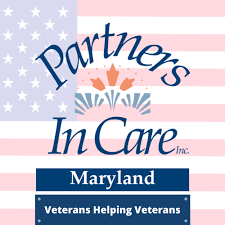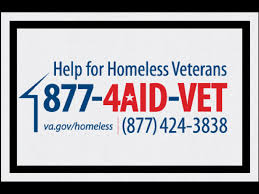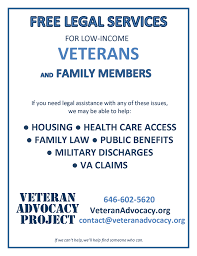Title: Veterans Helping Veterans: Building a Stronger Support Network
Introduction:
The bond between veterans is a unique and powerful one. The shared experiences, sacrifices, and challenges faced during military service create a deep connection that often lasts long after leaving the service. In recognition of this bond, many veterans have taken it upon themselves to help their fellow comrades in various ways. From providing support and guidance to advocating for their rights, veterans helping veterans is an essential aspect of building a stronger support network within the veteran community.
Peer Support:
One of the most significant ways veterans assist each other is through peer support programs. These programs create safe spaces where veterans can share their experiences, concerns, and struggles with others who have walked a similar path. By connecting with fellow veterans who understand their unique challenges, individuals can find comfort, empathy, and practical advice to navigate post-military life successfully.
Mentoring Programs:
Veterans often find fulfillment in mentoring those who have recently transitioned out of the military or are facing difficulties reintegrating into civilian life. Through mentorship programs, experienced veterans offer guidance on career development, education opportunities, and personal growth. These mentors provide invaluable insights based on their own experiences, helping mentees overcome obstacles and achieve their goals.
Advocacy for Benefits:
Navigating the complex web of benefits and entitlements available to veterans can be overwhelming. That’s where veteran advocates step in to help their fellow servicemembers access the resources they deserve. These advocates work tirelessly to ensure that every veteran receives proper medical care, disability compensation, educational assistance, housing support, and more.
Veteran-Owned Businesses:
Supporting veteran-owned businesses is another way veterans help each other thrive in the civilian world. By patronizing these businesses or offering mentorship in entrepreneurship endeavors, fellow veterans contribute to economic growth within the veteran community while fostering camaraderie and solidarity.
Volunteering & Community Engagement:
Many veterans find fulfillment in giving back to their communities. They actively engage in volunteering efforts, whether it’s assisting fellow veterans, participating in community service projects, or contributing to charitable organizations that support military families. By leveraging their unique skill sets and experiences, veterans positively impact the lives of others while finding a sense of purpose and fulfillment.
Conclusion:
The unwavering commitment of veterans helping veterans is a testament to the strong bond forged during military service. Through peer support, mentoring programs, advocacy for benefits, support for veteran-owned businesses, and community engagement, veterans continue to uplift and empower one another. These acts of solidarity not only improve the lives of individual veterans but also strengthen the entire veteran community.
As a society, we must recognize and appreciate the immense value that veterans bring to our communities even after they hang up their uniforms. By supporting initiatives that foster veteran-to-veteran assistance, we can create a more inclusive and supportive environment for those who have selflessly served our nation. Together, let us honor their sacrifices by ensuring that no veteran is left behind on their journey towards a fulfilling post-military life.
Frequently Asked Questions: Veterans Helping Veterans and Available Support Services
- How can veterans help other veterans?
- What benefits are available to veterans?
- How do I find resources for veterans in my area?
- What organizations provide support for veterans?
- Are there financial assistance programs for veterans?
- How can I volunteer to help veterans in need?
- What services are available to disabled veterans?
How can veterans help other veterans?
Veterans can help other veterans in various ways, utilizing their unique experiences and understanding of the challenges faced during military service. Here are some ways veterans can support their fellow comrades:
- Peer Support: Veterans can provide a listening ear and emotional support to those who may be struggling with the transition to civilian life or dealing with post-traumatic stress disorder (PTSD) or other mental health issues. By sharing their own experiences and offering guidance, veterans can provide comfort and reassurance to those going through similar situations.
- Mentorship: Veterans who have successfully navigated the transition from military to civilian life can serve as mentors to those who are just starting this journey. They can offer guidance on career choices, educational opportunities, networking, and personal development. Mentoring programs help mentees gain valuable insights, build confidence, and set achievable goals.
- Advocacy: Veterans can advocate for the rights and benefits entitled to their fellow servicemembers. This includes helping them navigate the often complex process of accessing healthcare services, disability compensation, educational benefits, housing assistance, and more. By advocating for fair treatment and adequate support systems, veterans ensure that no one is left behind.
- Networking: Veterans can leverage their extensive networks within the veteran community to connect others with job opportunities or resources that may be beneficial to them. Sharing job leads, professional connections, or introducing fellow veterans to supportive organizations helps create a stronger network of support for all.
- Entrepreneurship Support: Many veterans aspire to start their own businesses after leaving the military. Experienced veteran entrepreneurs can offer guidance on business planning, accessing capital or loans specifically available for veterans, marketing strategies, and navigating the unique challenges of running a veteran-owned business.
- Volunteering & Community Engagement: Veterans often find fulfillment in giving back to their communities through volunteering efforts. They can engage in activities that directly benefit other veterans or contribute their skills and expertise in community service projects that help improve the lives of others.
By harnessing their shared experiences, knowledge, and resources, veterans can create a supportive network that ensures no one feels alone or forgotten. The act of veterans helping veterans not only strengthens the bond within the veteran community but also contributes to the overall well-being and success of those who have served our nation.
What benefits are available to veterans?
Veterans are eligible for a range of benefits and services as a way to honor their service and support their transition to civilian life. Here are some key benefits available to veterans:
- Healthcare: The Department of Veterans Affairs (VA) provides comprehensive healthcare services, including medical, dental, and mental health care. Veterans may also receive specialized care for service-related injuries or conditions.
- Disability Compensation: Veterans who have a service-connected disability may be eligible for disability compensation. This financial benefit aims to provide support for disabilities resulting from military service.
- Education and Training: The VA offers various educational assistance programs, such as the Post-9/11 GI Bill, which covers tuition, housing allowances, and book stipends for veterans pursuing higher education or vocational training.
- Home Loans: The VA provides home loan guaranty programs that help veterans secure affordable home loans with favorable terms, including low-interest rates and no down payment requirements.
- Vocational Rehabilitation and Employment: Veterans with service-connected disabilities can access vocational rehabilitation services to enhance their employability and assist in finding suitable employment opportunities.
- Life Insurance: The VA offers life insurance options specifically designed for veterans, including Service-Disabled Veterans Insurance (S-DVI) and Veterans’ Group Life Insurance (VGLI).
- Burial Benefits: Eligible veterans can receive burial benefits that include a gravesite in a national cemetery, headstone or marker, burial flag, and even funeral honors.
- Mental Health Support: The VA provides mental health services tailored to the unique needs of veterans, including counseling, therapy, treatment for post-traumatic stress disorder (PTSD), substance abuse treatment, and suicide prevention resources.
- Dependents’ Benefits: Certain benefits extend to dependents of veterans, such as education assistance through the Survivors’ and Dependents’ Educational Assistance Program (DEA) or healthcare coverage through the Civilian Health and Medical Program of the VA (CHAMPVA).
- Commissary and Exchange Privileges: Veterans with service-connected disabilities, former prisoners of war, and Purple Heart recipients may have access to on-base commissaries, exchanges, and recreational facilities.
These benefits are just a glimpse of the support available to veterans. It is essential for veterans to connect with their local VA office or visit the official VA website to explore the full range of benefits they may be eligible for, as eligibility criteria may vary based on individual circumstances.
How do I find resources for veterans in my area?
Finding resources for veterans in your area can be done through various channels. Here are a few steps you can take to locate the resources you need:
- Department of Veterans Affairs (VA) Website: Visit the official website of the Department of Veterans Affairs (www.va.gov). The VA provides a wealth of information and resources for veterans, including benefits, healthcare services, education assistance, and more. Use their search function or navigate through their menus to find specific resources available in your area.
- Local Veteran Service Organizations: Reach out to local veteran service organizations such as the American Legion, Veterans of Foreign Wars (VFW), Disabled American Veterans (DAV), or Vietnam Veterans of America (VVA). These organizations often have chapters or offices in various cities and towns, offering support services, advocacy, and community programs specifically tailored to veterans.
- State or County Veteran Affairs Offices: Many states and counties have dedicated offices that focus on providing assistance to veterans. These offices can help connect you with local resources such as housing assistance programs, employment services, mental health support, and more. Search online for your state’s veteran affairs office or contact your county government for information on local veteran services.
- Community Resource Directories: Check community resource directories available online or at local libraries. These directories often list organizations and agencies that offer support to veterans in specific areas. They may include information on employment assistance programs, counseling services, legal aid clinics, housing options, and other relevant resources.
- Online Search Engines: Conduct an online search using keywords like “veteran resources” followed by the name of your city or region. This can help you find local nonprofits, charities, and government agencies that cater specifically to veterans’ needs in your area.
- Social Media Groups: Join social media groups or forums dedicated to veterans in your locality. These platforms often provide a space for veterans to connect with each other and share information about available resources, events, and support networks.
- Local Veterans Affairs Medical Centers: If you require healthcare services, contact your nearest VA medical center. They can provide information on medical care options available to veterans in your area and may also have resources for mental health support, rehabilitation services, and specialized clinics.
Remember to reach out to these resources directly for the most up-to-date and accurate information. Additionally, consider reaching out to fellow veterans or local veteran support groups who may have firsthand knowledge of resources available in your area.
What organizations provide support for veterans?
There are several organizations that provide support for veterans, offering a wide range of services and resources. Here are some notable examples:
- Department of Veterans Affairs (VA): The VA is a federal agency that provides comprehensive healthcare services, disability compensation, education benefits, home loans, and more to eligible veterans. They also operate Vet Centers across the country that offer counseling and readjustment services.
- Wounded Warrior Project (WWP): WWP is a nonprofit organization dedicated to supporting wounded veterans and their families. They offer programs and services focused on mental health support, physical rehabilitation, career counseling, and community engagement.
- Disabled American Veterans (DAV): DAV is a nonprofit organization that helps disabled veterans access benefits and services they are entitled to. They provide assistance with navigating the VA claims process, transportation to medical appointments, employment resources, and more.
- Iraq and Afghanistan Veterans of America (IAVA): IAVA is an advocacy organization that focuses on addressing the unique challenges faced by post-9/11 veterans. They provide resources for mental health support, employment assistance, education benefits, and community engagement opportunities.
- Fisher House Foundation: Fisher House Foundation offers free or low-cost lodging to military families while their loved ones receive medical treatment at VA medical centers or military hospitals. They have locations across the United States and in Europe.
- Team Rubicon: Team Rubicon is a disaster response organization that recruits military veterans to provide emergency relief in the aftermath of natural disasters. Their volunteers use their skills gained from military service to assist affected communities.
- Gary Sinise Foundation: The Gary Sinise Foundation supports veterans through various programs including building specially adapted smart homes for severely wounded veterans, hosting morale-boosting events for active duty personnel, providing educational scholarships for children of fallen soldiers, and supporting first responders.
- AMVETS (American Veterans): AMVETS is a veteran service organization that focuses on advocacy, support, and community involvement. They offer a range of services including career assistance, mental health support, and veteran benefits guidance.
These are just a few examples of the many organizations that provide support for veterans. Each organization has its own unique focus and set of services, so veterans can find assistance tailored to their specific needs.
Are there financial assistance programs for veterans?
Yes, there are several financial assistance programs available specifically for veterans. These programs aim to provide support and resources to help veterans with various financial needs. Here are a few examples:
- VA Benefits: The U.S. Department of Veterans Affairs (VA) offers a range of benefits and financial assistance programs for eligible veterans. These include disability compensation, pension programs, education and training benefits, home loans, and grants for adaptive housing modifications.
- Veteran Small Business Loans: The Small Business Administration (SBA) provides loans, grants, and resources to help veterans start or expand their own businesses. The SBA’s Office of Veterans Business Development (OVBD) offers specialized assistance to veteran entrepreneurs.
- Transition Assistance Programs: When transitioning from military service to civilian life, veterans may face financial challenges. The VA provides Transition Assistance Programs (TAP) that offer counseling, job placement services, and financial planning workshops to help veterans successfully navigate this transition.
- Housing Assistance: Various housing assistance programs are available for veterans who may be struggling with housing-related expenses or homelessness. These programs include the HUD-VASH program (combining HUD housing vouchers with VA supportive services), the Supportive Services for Veteran Families (SSVF) program, and the Grant and Per Diem (GPD) program.
- Emergency Financial Assistance: Non-profit organizations like the American Legion, Disabled American Veterans (DAV), and Veterans of Foreign Wars (VFW) provide emergency financial assistance to veterans facing immediate financial crises such as utility bills, rent/mortgage payments, or medical expenses.
- State-Specific Programs: Many states offer additional financial assistance programs for veterans in areas such as education benefits, property tax exemptions, vehicle registration discounts, and more. These programs vary by state but can provide valuable support.
It’s important for veterans to explore these resources thoroughly to determine their eligibility and understand the specific requirements of each program. Additionally, reaching out to local veterans service organizations or contacting the VA can provide further guidance and assistance in accessing these financial support programs.
How can I volunteer to help veterans in need?
If you’re interested in volunteering to help veterans in need, there are several avenues you can explore. Here are some suggestions to get you started:
- Contact Local Veterans Organizations: Reach out to local veterans organizations, such as American Legion, Veterans of Foreign Wars (VFW), Disabled American Veterans (DAV), or Vietnam Veterans of America (VVA). These organizations often have volunteer programs and can provide information on how you can contribute your time and skills.
- VA Voluntary Service: The Department of Veterans Affairs (VA) has a national volunteer program called VA Voluntary Service (VAVS). VAVS offers a wide range of opportunities to support veterans in VA medical centers, outpatient clinics, and other facilities. You can assist with activities like visiting patients, providing transportation, organizing events, or offering administrative support.
- Community Outreach Programs: Check with local community centers, shelters, or non-profit organizations that specifically focus on serving veterans. They may have volunteer opportunities related to housing assistance, job training, mental health support, or other essential services for veterans in need.
- Mentorship Programs: Look for mentorship programs aimed at assisting transitioning veterans or those facing challenges in civilian life. These programs connect volunteers with veterans who can benefit from guidance and support as they navigate post-military life.
- Homeless Shelters and Food Banks: Consider volunteering at homeless shelters or food banks that cater specifically to veterans. Many cities have organizations that provide temporary housing and meals for homeless veterans. Your assistance could involve serving meals, organizing donations, or helping with shelter maintenance.
- Fundraising Events: Participate in fundraising events organized by veteran-focused charities or non-profit organizations. These events often require volunteers to help with planning logistics, promoting the event, setting up booths/tables, assisting participants, or managing registration.
- Skills-Based Volunteering: Identify your specific skills and see if there are opportunities to utilize them in support of veterans. For example, if you have expertise in resume writing, offer your services to help veterans with job applications. If you’re a healthcare professional, consider volunteering at VA hospitals or clinics.
Remember, before volunteering, it’s essential to reach out to the organization or program you’re interested in and inquire about their volunteer requirements and any necessary training. Volunteering your time and effort can make a significant difference in the lives of veterans and show gratitude for their service to our country.
What services are available to disabled veterans?
Disabled veterans have access to a range of services and benefits to support their needs. Here are some key services available:
- Disability Compensation: Disabled veterans may be eligible for disability compensation, which provides monthly financial assistance based on the severity of their service-connected disabilities. The compensation aims to compensate for the impact these disabilities have on their daily lives.
- Healthcare: The Department of Veterans Affairs (VA) provides comprehensive healthcare services for disabled veterans. This includes medical treatment, rehabilitation, mental health support, and specialized care for specific conditions related to military service.
- Vocational Rehabilitation and Employment (VR&E): VR&E offers disabled veterans vocational counseling, training, education, and job placement assistance to help them transition into civilian employment or start their own businesses.
- Adaptive Housing Grants: Disabled veterans may qualify for grants through the VA’s Specially Adapted Housing (SAH) program or the Special Housing Adaptation (SHA) program. These grants help modify or build homes to accommodate specific disabilities and improve accessibility.
- Education Benefits: The VA offers educational assistance programs such as the Post-9/11 GI Bill and Vocational Rehabilitation programs that provide financial support for disabled veterans pursuing higher education or vocational training.
- Assistive Technology and Prosthetics: The VA provides assistive devices, prosthetic limbs, hearing aids, mobility aids, and other assistive technology to enhance the quality of life for disabled veterans.
- Caregiver Support: The VA offers a range of caregiver support services for family members providing care to disabled veterans at home. These services include respite care, counseling, training, and financial assistance.
- Mental Health Services: Disabled veterans can access mental health services through the VA’s specialized programs that address post-traumatic stress disorder (PTSD), depression, anxiety disorders, substance abuse issues, and other mental health conditions.
- Transportation Assistance: Disabled veterans may be eligible for transportation benefits, including travel to and from VA medical facilities for treatment or access to special transportation services in their local communities.
It’s important to note that eligibility for these services may vary based on factors such as the severity of disabilities, service-connected status, and other criteria. Disabled veterans are encouraged to contact their local VA office or visit the VA website to learn more about the specific benefits and services they may be eligible for.




